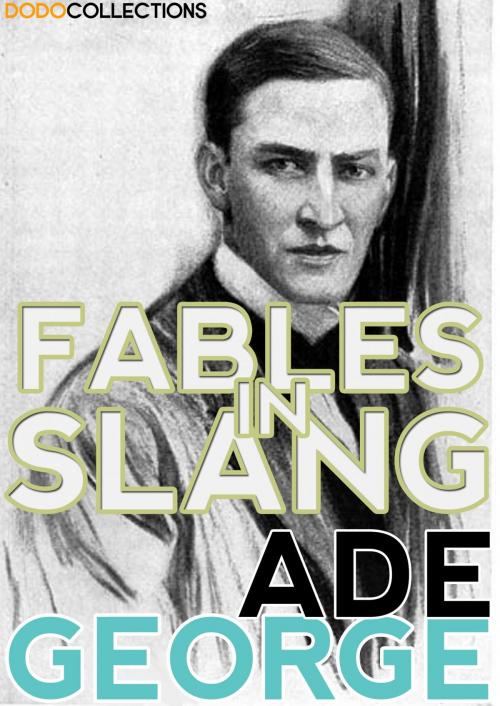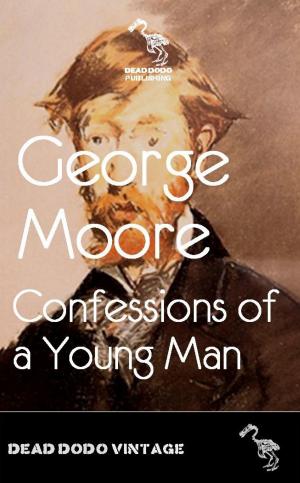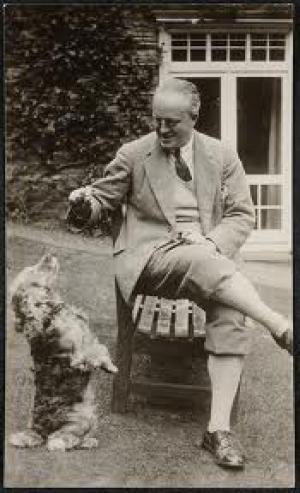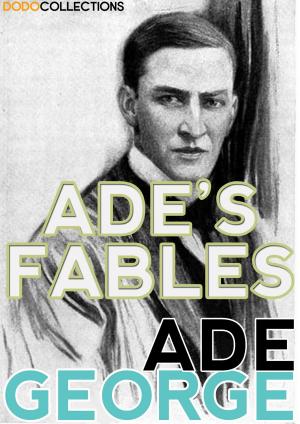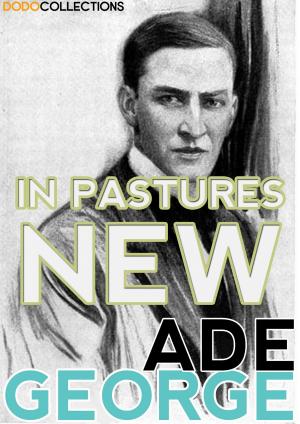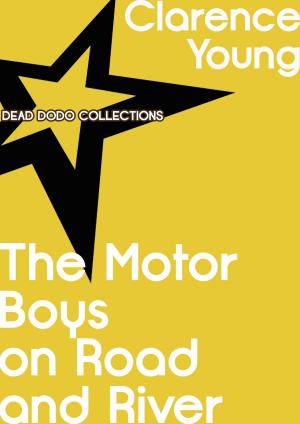| Author: | George Ade | ISBN: | 9781508023173 |
| Publisher: | Dead Dodo Classic Press | Publication: | August 29, 2015 |
| Imprint: | Dead Dodo Classic Press | Language: | English |
| Author: | George Ade |
| ISBN: | 9781508023173 |
| Publisher: | Dead Dodo Classic Press |
| Publication: | August 29, 2015 |
| Imprint: | Dead Dodo Classic Press |
| Language: | English |
Dodo Collections brings you another classic from George Ade ‘Fables in Slang.’
‘Fables in Slang’ was first published in 1899. In his unique "Fables in Slang," which purveyed not so much slang as the American colloquial vernacular, Ade pursued an effectively genial satire notable for its scrupulous objectivity. Ade's regular practice in the best fables is to present a little drama incorporating concrete, specific evidence with which he implicitly indicts the object of his satire—always a type (e.g., the social climber). The fable's actual moral is nearly always implicit, though he liked to tack on a mock, often ironic moral (e.g., "Industry and perseverance bring a sure reward").
George Ade (February 9, 1866 – May 16, 1944) was an American writer, newspaper columnist, and playwright. Ade's literary reputation rests upon his achievements as a great humorist of American character during an important era in American history: the first large wave of migration from the countryside to burgeoning cities like Chicago, where, in fact, Ade produced his best fiction. He was a practicing realist during the Age of (William Dean) Howells and a local colorist of Chicago and the Midwest. His work constitutes a vast comedy of Midwestern manners and, indeed, a comedy of late 19th-century American manners. In 1915, Sir Walter Raleigh, Oxford professor and man of letters, while on a lecture tour in America, called George Ade "the greatest living American writer.
Ade's fiction dealt consistently with the "little man," the common, undistinguished, average American, usually a farmer or lower middle class citizen. (He sometimes skewered women, too, especially women with laughable social pretensions.) Ade followed in the footsteps of his idol Mark Twain by making expert use of the American language. A striking and unique feature of Ade's essays was the creative and liberal use of capitalization. George Ade is one of the American writers whose publications made him rich.
Dodo Collections brings you another classic from George Ade ‘Fables in Slang.’
‘Fables in Slang’ was first published in 1899. In his unique "Fables in Slang," which purveyed not so much slang as the American colloquial vernacular, Ade pursued an effectively genial satire notable for its scrupulous objectivity. Ade's regular practice in the best fables is to present a little drama incorporating concrete, specific evidence with which he implicitly indicts the object of his satire—always a type (e.g., the social climber). The fable's actual moral is nearly always implicit, though he liked to tack on a mock, often ironic moral (e.g., "Industry and perseverance bring a sure reward").
George Ade (February 9, 1866 – May 16, 1944) was an American writer, newspaper columnist, and playwright. Ade's literary reputation rests upon his achievements as a great humorist of American character during an important era in American history: the first large wave of migration from the countryside to burgeoning cities like Chicago, where, in fact, Ade produced his best fiction. He was a practicing realist during the Age of (William Dean) Howells and a local colorist of Chicago and the Midwest. His work constitutes a vast comedy of Midwestern manners and, indeed, a comedy of late 19th-century American manners. In 1915, Sir Walter Raleigh, Oxford professor and man of letters, while on a lecture tour in America, called George Ade "the greatest living American writer.
Ade's fiction dealt consistently with the "little man," the common, undistinguished, average American, usually a farmer or lower middle class citizen. (He sometimes skewered women, too, especially women with laughable social pretensions.) Ade followed in the footsteps of his idol Mark Twain by making expert use of the American language. A striking and unique feature of Ade's essays was the creative and liberal use of capitalization. George Ade is one of the American writers whose publications made him rich.
